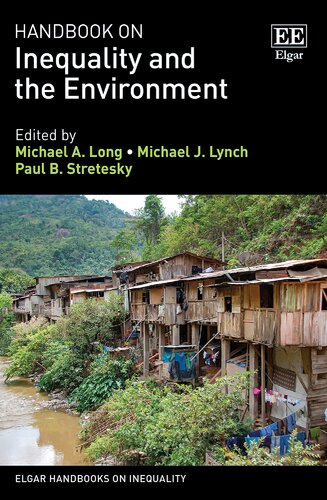

Most ebook files are in PDF format, so you can easily read them using various software such as Foxit Reader or directly on the Google Chrome browser.
Some ebook files are released by publishers in other formats such as .awz, .mobi, .epub, .fb2, etc. You may need to install specific software to read these formats on mobile/PC, such as Calibre.
Please read the tutorial at this link: https://ebookbell.com/faq
We offer FREE conversion to the popular formats you request; however, this may take some time. Therefore, right after payment, please email us, and we will try to provide the service as quickly as possible.
For some exceptional file formats or broken links (if any), please refrain from opening any disputes. Instead, email us first, and we will try to assist within a maximum of 6 hours.
EbookBell Team

5.0
110 reviews
Featuring over 30 contributions from leading experts in the field, it explores the ways in which inequality impacts three of the most pressing contemporary environmental issues: climate change, natural resource extraction, and food insecurity. Laying the conceptual foundations for its analysis of key inequality–environment intersections, the Handbook covers theoretical traditions employed in the environmental inequality literature and examines different approaches to the concept of rights and how these influence scholarship on environmental justice. Chapters further investigate the multifaceted relationships between the natural environment and common forms of social inequalities, including race, ethnicity, gender, sexuality, social class, the economy, and the state.
Bringing together cutting-edge research on diverse inequality–environment intersections, this comprehensive Handbook will be relevant to both students and researchers in the social sciences and environmental sociology, politics, and geography. Its empirical insights will also prove valuable to public and social policymakers with access to mechanisms that can shape environmental protection policies.